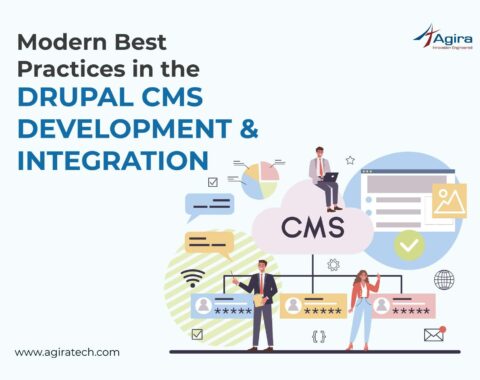There is no doubt that Shopify is a leading eCommerce solution that caters to all the needs of eCommerce entrepreneurs. Considering that fact, it is clear that it’s challenging to beat Shopify in the market. It’s inexpensive, easy to use, has lots of integrations, and can satisfy the company even when it expands.
Do you think of any other alternative that can provide you with the same or better benefits than Shopify? Here, we have listed the top Shopify alternatives. If you are an established Shopify customer searching for alternatives to Shopify or contrasting Shopify rivals in the quest for the right eCommerce platform, we will help you find a technology the unique needs of your business. Shopify may be the most common alternative, but that doesn’t mean it’s mandatory for everybody.
Best Shopify Alternatives
1. BigCommerce
Like Shopify, BigCommerce is equipped with technology and tools to support you in developing your online stores. With 600 product variations, Bigcommerce comes with exclusive features.
When Shopify charges between 0.5% to 2% as a transaction fee, BigCommerce does not charge a transaction fee when you work with a third-party payment processor. Also, if you use PayPal, you can get discounts on Mastercard handling rates. SecoMerchants on BigCommerce can add a credit to the customer’s account for future purchases. It unlocks order editing and customer credit features that are lacking from Shopify. Both apps are simple to use but based on user feedback, BigCommerce appears to be more intuitive.
2. WooCommerce
As an open-source e-commerce plug-in developed for WordPress, WooCommerce successfully delivered the desired outcomes. It helps consumers to use the most powerful content management system (CMS), which is used to operate an online store. This open-source technology lets the user customize any part of your store and quickly create custom extensions. The preference between WooCommerce and Shopify depends on the needs of the eCommerce store and the developer’s skillsets.

3. Magento
Since Magento is an open-source application, it can be downloaded free of charge and entirely customizable. Unlike Shopify, setting up the e-commerce store is not a piece of cake because it needs high-level programming skills. In addition, you’re going to need development capital. If you want more built-in features than Shopify provides, you can prefer Magento over Shopify. If your key business model includes the final monitoring and tuning of your e-commerce workflow, it is better to choose Magento.
4. PinnacleCart
PinnacleCart is a remodeled internet shopping basket, which is anything but difficult to set up and use. It helps clients to change an online shop, track the inventory of products, make a showcase effort, and collect a web overview. It also takes care of multinational customers as it underpins multilingual and monetary norms. It also provides free movement of more than 40 separate shopping baskets, as well as a schedule and SEO administration.
It also offers a comprehensive backend that enables webshops to be crafted primarily, to track item inventories, to support initiatives, and to collect web feedback. You should prefer PinnacleCart if the accompanying items are important to you:
- Occasionally, you require unrestricted administrator accounts.
- Try not to have to pay any extra trading expenses.
- You need to have a remote shop.
5. Squarespace
Squarespace is known for the design of its business-explicit formats. It helps its clients to view their items through a library of selected and expert topics.
It’s a smart decision for little shops. If you’re looking for highlights such as personalized alerts, costs, dispatch reconciliations, and so on, Squarespace is the perfect alternative. Here are several unique highlights captured by Squarespace, which lets it stand out from Shopify:
Squarespace lets clients drag and drop content segments as it has a visually streamlined page manager. Squarespace has a superior page boss as it helps clients render structures, maps, coffee menus, grab, sound players, photo shows, outlines, and a bundle more. Squarespace has the best topic customization apparatus of any web designer over Shopify. You can use your picture tones and text types as a client using Squarespace without much of a stretch.
6. Volusion
This Austin-based company is one of the most experienced in the online business industry, founded in 1999. It’s one of Shopify’s biggest options representing more than 200,000 organizations. Installment processing is easier. Including all of its contracts provides increments with Stripe, PayPal, and its own Volusion installments. Unlike Shopify, it does not bill any outsider installment systems for trade charges. Twenty years of experience in the internet company fragment, Volusion provides a rich collection of highlights, including landing page slideshow, rich substance manager, alternate distribution, safe checkout, repeat installments, executive client relationship (CRM), and more.
7. Wix
Wix is a web builder with a streamlined boss that helps clients create an expert platform without learning a coding line. With several templates and tools, Wix empowers clients to create and market a consumer site. As far as Wix and Shopify are concerned, Wix offers apprentices benevolent web-based market highlights targeted towards small online shops. Shopify is fair for many larger retailers, just like it has managed to oversee a vast range of stores without any issues. Wix’s strategy starts at $23 a month, while Shopify Simple starts at $26 a month.
You can select Wix over Shopify with the following requirements or prerequisites:
On the off chance that you have small stuff and a low-volume company. You’d like not to spend a lot of resources and resources, and you do need a lovely internet web place.
Also Read: Ecommerce Payment study: Which Methods do Shoppers Want?
8. 3dCart
Established in 1997 and launched publicly in 2001, 3dcart is a cloud-based shopping cart solution. This cart comes filled with features at an enticing price point. You may also purchase web design services and SSL certificates from 3dcart at an extra fee.
3dcart is a much smaller outfit than Shopify, but with an explosion of powerful features both built-in and available as independent integrations 3dcart is an eCommerce app that certainly deserves your attention.
Choosing the best web-based market stage is one of the main decisions you need to make before launching your online business. Choosing the best internet business level depends on the criteria, spending schedule, expertise, and assets of the business. We’ve referred to the best contribution of Shopify Options, which will help you select the right level.
Picking the correct web-based business stage is one of the vital choices you need to make while beginning your online business. Choosing the right internet business stage relies upon your business’ requirements, spending plan, aptitudes, and assets.
In this blog, we have referenced the best contribution of Shopify choices, which will help you pick the correct stage. On the off chance that you are searching for the best eCommerce answer for your venture, you can depend on the top eCommerce improvement organizations in choosing the correct stage dependent on your prerequisites.
If you have a business idea in your mind and searching for a reliable web development company, you are in the right place. Hire the best web developers in the industry from Agira technologies.










